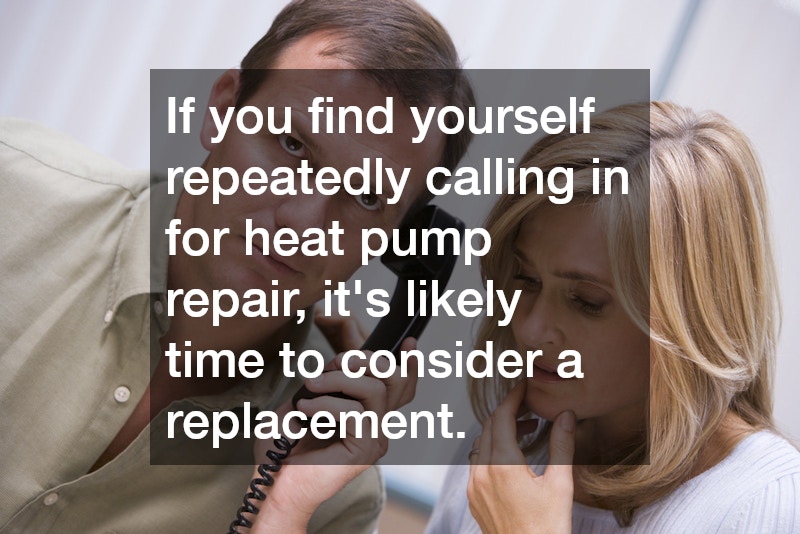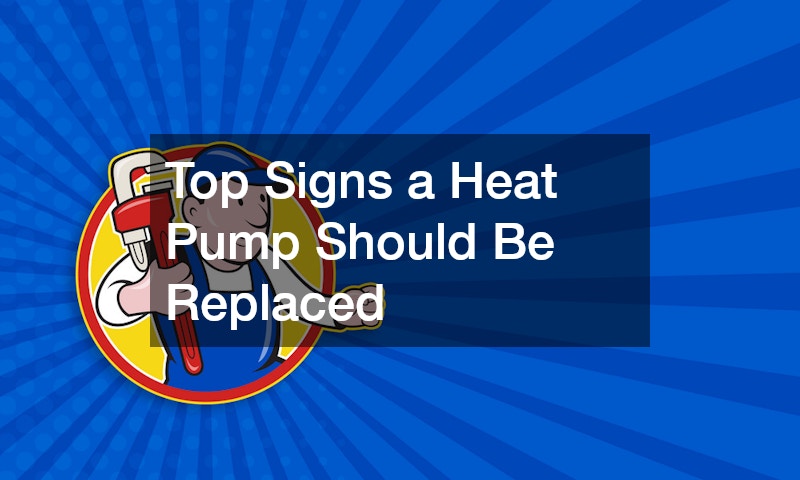In the realm of home heating and cooling, the heat pump stands as a versatile solution. However, like any machine, it won’t last forever. Knowing when to replace your heat pump can save you from unexpectedly finding yourself without proper heating or cooling at a crucial time. This guide provides insight into the top signs that indicate it’s time to consider a replacement.
How do I know if my heat pump is failing?
Increased Energy Bills
One of the first indicators of a failing heat pump is a spike in energy bills. If your power usage appears abnormal compared to past seasons without any significant changes in usage behavior, it might be due to your heat pump losing efficiency.
As heat pumps age, they can become less efficient, making them work harder to maintain the desired temperature, which in turn increases energy consumption.
Regular monitoring of your energy bills can provide insights into trends or anomalies. When no other changes have been made to household energy use, an inefficient heat pump can account for a sudden increase in utility costs. This inefficiency can sometimes be caused by components such as compressors or motors that aren’t working optimally anymore.
Inconsistent Temperatures
Another sign is the presence of inconsistent temperatures throughout your home. A properly functioning heat pump should evenly distribute air, so zones that are too hot or too cold suggest it may not be performing optimally. When heat pumps struggle to distribute air evenly, it often means that components are wearing out, perhaps due to extensive usage or mechanical issues.
Inconsistent temperatures can also result from blockages or leaks in the ductwork. When this occurs, certain rooms may receive inadequate heating or cooling, while others receive an excess. This problem not only affects comfort but may also lead to increased wear and tear on the pump as it overworks to compensate for the discrepancies.
Strange Noises
Unusual sounds such as grinding, clicking, or squealing coming from your heat pump are strong indicators of internal issues. Such noises often point to mechanical problems that may lead to comprehensive failure if not addressed. Bearings or belts may have worn out over time, and if neglected, can cause a domino effect of issues.
A heat pump is designed to operate quietly, so any deviation from this norm warrants immediate attention. Continuing to run a system that emits noises can compound the damage, leading to more costly repairs or the need for a full replacement. These sounds may sometimes indicate something as simple as debris that has become lodged in the fan or motor, but they are often emblematic of larger mechanical failures.
What is the lifespan of a typical heat pump?
Age of the Heat Pump
Heat pumps generally have a lifespan of about 10 to 15 years. Units older than this may not align with modern energy efficiency standards and could be more prone to breakdowns and failures. As heat pumps age, their components, such as compressors and coils, are subjected to wear and tear that compromises overall performance.
Technological advancements have significantly improved the energy efficiency of newer heat pump models. An older heat pump may be insufficient in comparison, leading to higher operational costs. Replacing an old unit can lead to better energy efficiency and a reduced carbon footprint, aligned with current standards of sustainability.
Frequent Repairs
If you find yourself repeatedly calling in for heat pump repair, it’s likely time to consider a replacement. As a heat pump ages, not only do components wear out, but parts may also become obsolete, making repairs more expensive and difficult. Frequent repairs are indicative of underlying issues that may not be economically viable to fix in the long term.
The cost of regular repairs can quickly accumulate, often nearing or even exceeding the cost of a new unit. Beyond the financial aspect, frequent breakdowns interrupt the comfort and convenience a heat pump is supposed to provide. Additionally, older models may lack compatibility with newer parts or refrigerants, further complicating repair efforts.
Recognizing the signs that your heat pump needs replacement can prevent unwanted disruptions and maintain the comfort and efficiency of your home. By paying attention to increases in energy bills, room temperature inconsistencies, mechanical noises, and considering the unit’s overall age and repair frequency, you can make an informed decision about when it’s time for an upgrade. Proactively embracing these indicators allows you to enjoy a comfortable, efficient, and cost-effective heating and cooling solution for years to come.
.


